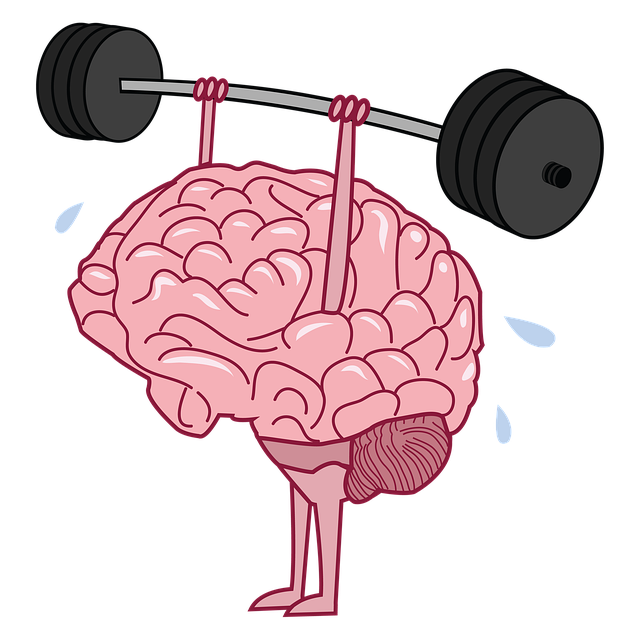Mindful eating and creative nutrition are key components of successful wellness programs for mind and body. By focusing on sensory experiences, emotions, and physical signals without judgment, individuals develop a healthier relationship with food. This leads to recognizing hunger and satiety cues, making conscious dietary choices, improving mental well-being, reducing stress, and enhancing overall quality of life. Personalized nutrition plans that integrate mindfulness practices enable individuals to make choices that support both physical and mental health. Success is measured by increased self-awareness, improved digestion, sustained energy levels, emotional balance, and a positive relationship with food, rather than just numerical metrics like weight loss.
Unleash your creativity in the realm of nutrition and mindful eating, a powerful combination for achieving optimal well-being. This article explores innovative strategies to enhance your approach to wellness programs focused on mind and body. From understanding the core principles of mindful eating to integrating artistic expression into meal planning, you’ll discover unique ways to nurture both your physical and mental health. We also guide you through crafting personalized nutrition plans and offer insights on measuring success for sustained healthy habits.
- Understanding Mindful Eating: The Foundation of Wellness Programs
- Integrating Creativity into Nutrition: Unlocking New Perspectives
- Designing Personalized Mind-Body Nutrition Plans
- Measuring Success and Sustaining Healthy Habits
Understanding Mindful Eating: The Foundation of Wellness Programs

Mindful eating, a concept that has gained significant traction in recent years, is more than just a diet trend; it’s a practice that forms the foundation for effective wellness programs focused on both mind and body. At its core, mindful eating encourages individuals to cultivate awareness and attention while consuming food. This involves paying attention to sensory experiences, emotions, and physical signals associated with meals, without judgment.
Incorporating this approach into wellness programs can lead to profound changes in one’s relationship with food. By fostering a deeper connection between the mind and body, participants learn to recognize hunger cues, appreciate satiety, and make conscious choices about what and how much they eat. Such practices not only promote healthier dietary habits but also contribute to improved mental well-being, stress reduction, and overall enhanced quality of life—key components of successful wellness programs.
Integrating Creativity into Nutrition: Unlocking New Perspectives

Integrating creativity into nutrition opens up a world of possibilities for enhancing well-being. By viewing food as more than just sustenance, we can cultivate a deeper connection with our bodies and minds. Creative approaches, such as cooking from scratch using vibrant, seasonal ingredients or designing visually appealing meals that delight the senses, transform mealtime into an artful experience. This sensory engagement not only encourages mindful eating but also fosters a positive relationship with food.
Wellness programs for mind and body often emphasize self-expression and experimentation. Encouraging individuals to explore different culinary techniques, experiment with flavors, and embrace unconventional ingredients can unlock new perspectives on nutrition. This innovative mindset promotes not just physical health but also mental well-being by reducing stress and increasing joy associated with food consumption.
Designing Personalized Mind-Body Nutrition Plans

Designing Personalized Mind-Body Nutrition Plans involves a holistic approach that goes beyond simple calorie counting or following trendy diets. It starts with understanding individual needs, preferences, and lifestyle factors. By integrating mindfulness practices into nutrition planning, individuals can develop a healthier relationship with food, making choices that support both physical and mental well-being.
Wellness programs for mind and body often incorporate techniques like mindful eating exercises, where one pays attention to hunger cues, satiety signals, and the sensory experience of eating. These plans may also include recommendations for nutrient-dense foods that nourish not just the body but also fuel mental clarity and emotional balance. Personalization ensures that each plan is tailored to meet specific goals, whether it’s managing stress levels, improving energy, or promoting overall health.
Measuring Success and Sustaining Healthy Habits

Measuring success in creative nutrition and mindful eating initiatives is a key aspect to ensure long-term adherence and positive health outcomes. Unlike traditional dieting approaches, which often rely on numerical metrics like weight loss, this holistic approach focuses on internal cues and overall wellness. Success here can be defined by increased self-awareness during meals, improved digestion, sustained energy levels, and emotional balance. Incorporating practices such as mindful chewing, food journaling, or participating in community gardening can offer valuable insights into personal eating habits and their impact on the mind and body.
Wellness programs designed for both mind and body should encourage sustainable changes rather than fleeting trends. By setting realistic goals, incorporating diverse yet balanced diets, and fostering a positive relationship with food, individuals can develop long-lasting healthy habits. Regular reflection and adjustment are crucial, as what works for one person might not be suitable for another. Embracing flexibility and personalizing strategies to fit unique lifestyles ensures that these wellness programs remain effective and enjoyable over time.
Creative approaches to nutrition and mindful eating are not just trends, but powerful tools for enhancing wellness programs. By integrating these methods, we can design personalized mind-body nutrition plans that cater to individual needs and preferences. Through measured success and sustained healthy habits, individuals can achieve optimal well-being, demonstrating that a holistic approach to nutrition is key to long-term health and happiness.
